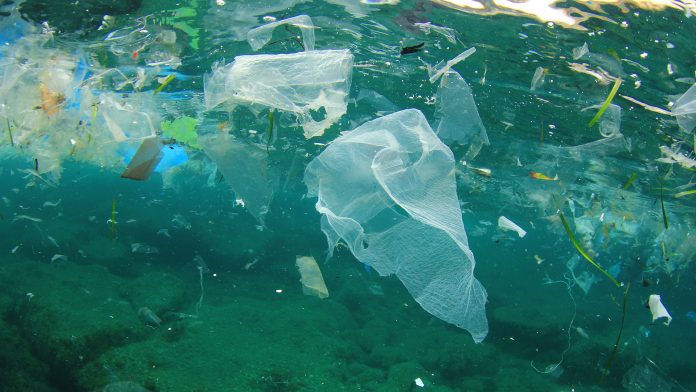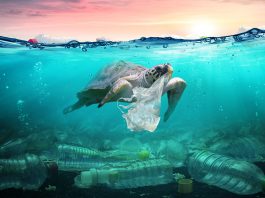A University of Portsmouth programme is supporting five PhD students in pioneering innovative solutions to tackle marine plastic pollution.
The project will support the researchers for four years to explore the complex and exponentially growing issue of marine plastic pollution. The programme is supported by Aquapak, a material technologies company from the UK, to tackle this significant global problem.
The UK’s role in plastic waste production
Estimates suggest that in the UK alone, around five million tonnes of plastic are used annually, with about 50% of this ending up as marine plastic pollution that harms the environment. Plastic waste is a severe problem, as when plastic breaks down in our oceans, they pose a significant threat to marine and human health.
Professor Steve Fletcher, Director of Revolution Plastics and the Global Plastics Policy Centre at the University of Portsmouth, said: “Relatively little is known about how and what speed plastic packaging degenerates in the environment and how industry practice could help to end the damaging impact of plastics. To develop meaningful solutions, it is vital to better understand the products causing the plastic pollution, how they pollute and how their damage can be reduced. Research is key to shaping that understanding and the transformational change that will follow. Having a dedicated team of scientists is really going to help accelerate our search for solutions.”
What will the programme involve?
The research group will form an interdisciplinary cluster to perform a total of 20 years of research and will be supported by leading senior scientists in their field. This collaboration of academics will work to innovate solutions to combat marine plastic pollution.
Dr John Williams, Chief Technology Officer, Aquapak, said: “Aquapak is delighted to be partnering with the University of Portsmouth in such an important area studying marine pollution associated with plastic packaging. In developing our Hydropol materials platform, we have always been driven by providing a complete solution for the packaging developers and manufacturers, from multifunctionality to safe disposal at the end of use.
“However, we have always been mindful that inevitably plastic materials escape into the environment and often end up in the oceans, and although this has come to the forefront in recent times, there is very little understanding of exactly how these materials behave in the variety of marine environments. Aquapak’s sponsorship of this ground-breaking interdisciplinary approach with the global experts at the University of Portsmouth will significantly increase the knowledge in this area and aid the drive towards better design, better materials, and a cleaner environment.”
The researchers will work on these projects:
- Engineering enzymes and processes for recycling single-use plastics – led by Professor Andy Pickford, Centre for Enzyme Engineering. Two PhD’s will work on this project.
- Development of sustainable biodegradable packaging for food or other types of packaging applications – led by Professor Hom Dhakal of the School of mechanical and design engineering, and Professor Alex Ford, Institute of Marine Sciences.
- Assessing the formation of microplastic pollution by pure and composite plastic packaging products – led by Dr Fay Couceiro, School of civil engineering and surveying.
- The role of ‘design for circularity’ in the transition to a circular plastics economy – led by Professor Steve Fletcher, Global Plastics Policy Centre.
Professor Fletcher concluded: “This opportunity is likely to create a critical impact that spans the whole supply chain of plastic. The interdisciplinary nature of the PhD cluster means that new knowledge is not produced in isolation, but in a way that ensures all areas inform each other.”









